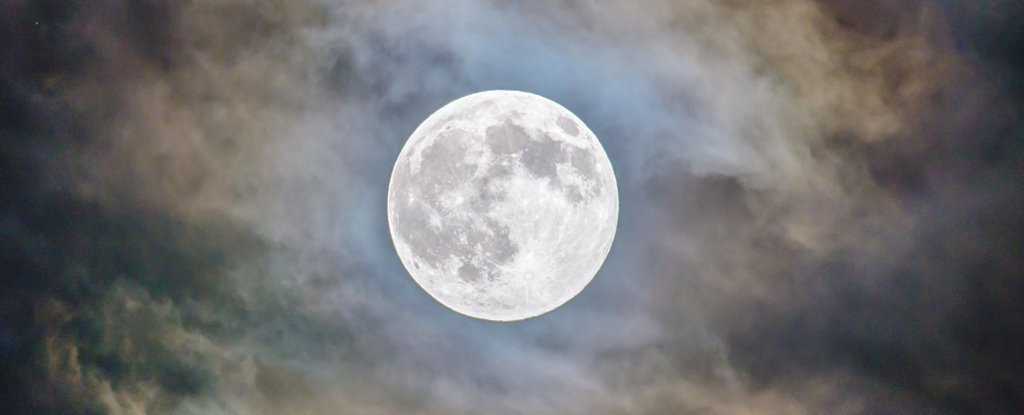
In modern times, a great deal of research has focused on the way that artificial light sources mess up our sleep and health, due to the unnatural effects of illumination after the Sun goes down.
But just how unnatural is night-time light anyway? After all, humans have always been exposed to variable levels of light at night, due to reflections of sunlight from the waxing and waning Moon – and this shifting radiance stimulates us in ways we aren't fully aware of, new research suggests.
"Moonlight is so bright to the human eye that it is entirely reasonable to imagine that, in the absence of other sources of light, this source of nocturnal light could have had a role in modulating human nocturnal activity and sleep," a team of researchers, led by senior author and neurobiologist Horacio de la Iglesia from the University of Washington, explain in a new study.
"However, whether the Moon cycle can modulate human nocturnal activity and sleep remains a matter of controversy."
To investigate the mystery, the researchers fitted over 500 participants with wrist-based activity monitors, to track their sleep patterns, and conducted the experiment in vastly different locales.
Firstly, they involved 98 participants from the Toba-Qom people, an indigenous community living in the Formosa province of Argentina. Some of these rural participants in the experiment had no access to electricity, others had limited access in their homes, while a final contingent lived in an urban setting with full access to electricity.
In a separate experiment, the researchers tracked the sleep of 464 college students living in the Seattle area – a major, modernised city with all the electrified trappings of post-industrial society.
Tracking the participants' sleep activity over the lunar month cycle, the researchers found the same kind of pattern could be seen in their sleep and waking, regardless of where the volunteers lived.
"We see a clear lunar modulation of sleep, with sleep decreasing and a later onset of sleep in the days preceding a full Moon," de la Iglesia says.
"Although the effect is more robust in communities without access to electricity, the effect is present in communities with electricity, including undergraduates at the University of Washington."
While there was some variance between the results, in general, the data showed that sleep tends to start later and overall lasts a shorter amount of time on the nights leading up to a full Moon, when moonlight provided by the waxing Moon is brighter in the hours following dusk.
While the sample size studied here is not especially large – and there's certainly more research that could be done here to expand upon these results – that the same pattern was observed in two distinct populations living in separate countries, and with such varying levels of access to electricity between all the volunteers, does tell us some important things, the team says.
"Together, these results strongly suggest that human sleep is synchronised with lunar phases regardless of ethnic and sociocultural background, and of the level of urbanisation," the researchers write in their paper.
As for what gives rise to these effects, the researchers contend that extended nocturnal activity stimulated by moonlight could be an evolutionary adaptation carried over from the time of pre-industrial human societies – with the ability to stay up and do more under a brilliant full Moon benefitting all kinds of traditional customs still enjoyed by peoples without electricity today.
"At certain times of the month, the Moon is a significant source of light in the evenings, and that would have been clearly evident to our ancestors thousands of years ago," says first author and sleep biologist Leandro Casiraghi.
According to interviews with Toba/Qom individuals, moonlit nights are still known for high hunting and fishing activity, increased social events, and heightened sexual relations between men and women.
"Although the true adaptive value of human activity during moonlit nights remains to be determined, our data seem to show that humans – in a variety of environments – are more active and sleep less when moonlight is available during the early hours of the night," the researchers explain.
"This finding, in turn, suggests that the effect of electric light on modern humans may have tapped into an ancestral regulatory role of moonlight on sleep."
The findings are reported in Science Advances.
Article From & Read More ( The Full Moon Changes How People Sleep Without Us Ever Realising, Says Study - ScienceAlert )https://ift.tt/3qToBY0
Science
No comments:
Post a Comment